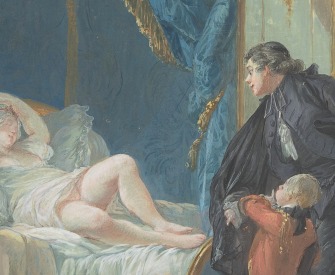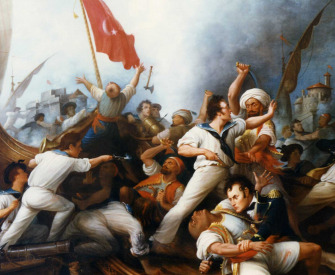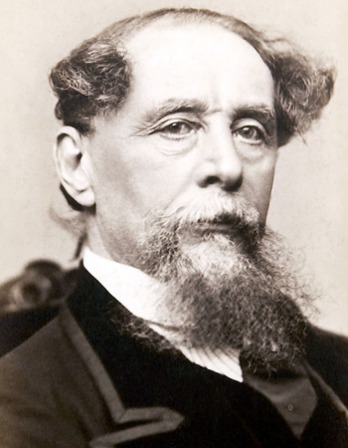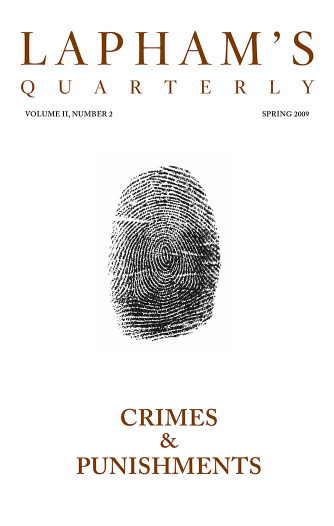O my friend, these arts whose purpose it is to imitate nature, whether through speech, as in eloquence and poetry, or through sounds, as in music, or through colors and the brush, as in painting, or the pencil, as in drawing, or the chisel and clay, as in sculpture, or the graver, stone, and metal, as in engraving, or the drill, as in the engraving of precious stones, or the stylus, the caulking chisel, and the graver, as in metal chasing, these arts are long, laborious, and difficult!
Remember what Chardin told us at the Salon: “Gentlemen, gentlemen, be lenient. Look through all the paintings here and find the worst, and know that two thousand poor devils have bitten their brushes to pieces in despair of ever doing as badly. You call Parrocel a dauber, and so he is, if you compare him with Vernet, but he’s a rare talent compared with the multitude of those who’ve abandoned the career they entered with him. Le Moyne used to say that it took thirty years’ practice to be able to turn one’s original sketch into a painting, and Le Moyne was no fool. If you’ll listen to what I say, perhaps you’ll learn to be indulgent.”
Chardin seemed to doubt whether there was any longer and more laborious form of training than a painter’s, not excepting even those of doctor, lawyer, or professor at the Sorbonne.
“At the age of seven or eight,” he said, “they put a pencil in our hands. We start copying eyes, mouths, noses, ears, then feet and hands. Our backs have long been bent over our portfolios before they set us in front of Hercules or the Torso, and you’ve never witnessed the tears we’ve shed over the Satyr, the Gladiator, the Venus de Medici, or Antinous. You can be sure that these masterpieces of Greek art would never again arouse the jealousy of the masters if they had been delivered up to the anger of the pupils. After we’ve wasted our days and spent our lamplit nights before motionless, lifeless things, we’re presented with living things, and all of a sudden the toil of all the preceding years seems to be reduced to nothing; no such demands were made of us even when we first took up a pencil. You have to teach your eye to look at nature—and how many there are who have never seen it and never will see it! It’s the torment of our lives. They’ve kept us sitting in front of a model for five or six years before they deliver us up to our genius, if we have any. Talent doesn’t declare itself on the instant; it takes more than a first attempt before you have the courage to admit your incapacity. How many efforts we make, some successful, some not. Precious years have gone by before we reach the final day of disenchantment, weariness, and fatigue. The pupil is nineteen or twenty when the palette falls from his hand, and he’s left without a profession, without resources, and without morals, for to be both young and respectable—if one is constantly gazing upon nature unadorned—is an impossibility. What is to be done? What can he do? Either he must resort to one of those inferior positions which are open to the destitute, or he must die of hunger. They take the first choice, and except for a score or so who come here every two years to exhibit themselves to the masses, the others, obscure and perhaps less unhappy, wear the plastron on their chests in a fencing school, or the musket over their shoulders in a regiment, or a theatrical costume on the boards. What I’m telling you here is the story of Belcourt, Le Kain, and Brisart, all of them bad actors out of despair at being bad painters.”
Chardin told us, if you remember, that one of his colleagues, whose son was a drummer in a regiment, replied to those who asked about him that he’d abandoned painting for music. Then, becoming serious again, he added, “Not all the fathers of these talentless, bewildered children are as good-humored about it. What you see here is the result of the toil of the small number who have struggled with some degree of success. Anyone who has not been aware of the difficulty of art will never do anything worthwhile; someone like my son, who became aware of it too early, will do nothing at all—and believe me, most of the highest posts in society would be empty if admission depended on an examination as rigorous as the one we have to undergo.”
From The Salons. After his father disowned him for his choosing to become a writer, Diderot in the 1730s and 40s earned his living by composing sermons, translating tracts, and tutoring the children of wealthy families. His editing of the Encyclopédie, published in France between 1751 and 1772, established him as one of the major figures of the eighteenth-century Enlightenment.
Back to Issue





